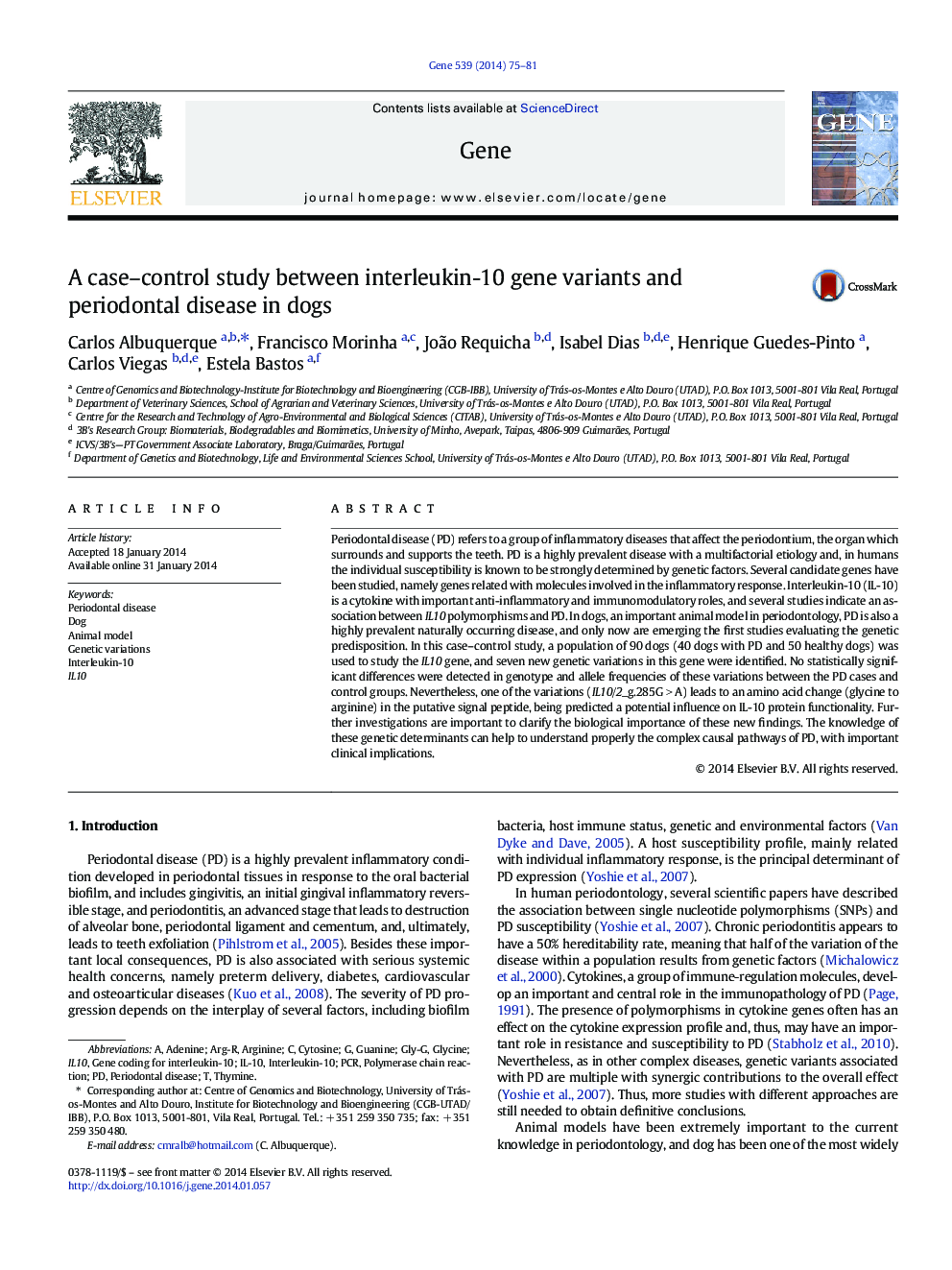| Article ID | Journal | Published Year | Pages | File Type |
|---|---|---|---|---|
| 5905829 | Gene | 2014 | 7 Pages |
Abstract
Periodontal disease (PD) refers to a group of inflammatory diseases that affect the periodontium, the organ which surrounds and supports the teeth. PD is a highly prevalent disease with a multifactorial etiology and, in humans the individual susceptibility is known to be strongly determined by genetic factors. Several candidate genes have been studied, namely genes related with molecules involved in the inflammatory response. Interleukin-10 (IL-10) is a cytokine with important anti-inflammatory and immunomodulatory roles, and several studies indicate an association between IL10 polymorphisms and PD. In dogs, an important animal model in periodontology, PD is also a highly prevalent naturally occurring disease, and only now are emerging the first studies evaluating the genetic predisposition. In this case-control study, a population of 90 dogs (40 dogs with PD and 50 healthy dogs) was used to study the IL10 gene, and seven new genetic variations in this gene were identified. No statistically significant differences were detected in genotype and allele frequencies of these variations between the PD cases and control groups. Nevertheless, one of the variations (IL10/2_g.285GÂ >Â A) leads to an amino acid change (glycine to arginine) in the putative signal peptide, being predicted a potential influence on IL-10 protein functionality. Further investigations are important to clarify the biological importance of these new findings. The knowledge of these genetic determinants can help to understand properly the complex causal pathways of PD, with important clinical implications.
Related Topics
Life Sciences
Biochemistry, Genetics and Molecular Biology
Genetics
Authors
Carlos Albuquerque, Francisco Morinha, João Requicha, Isabel Dias, Henrique Guedes-Pinto, Carlos Viegas, Estela Bastos,
